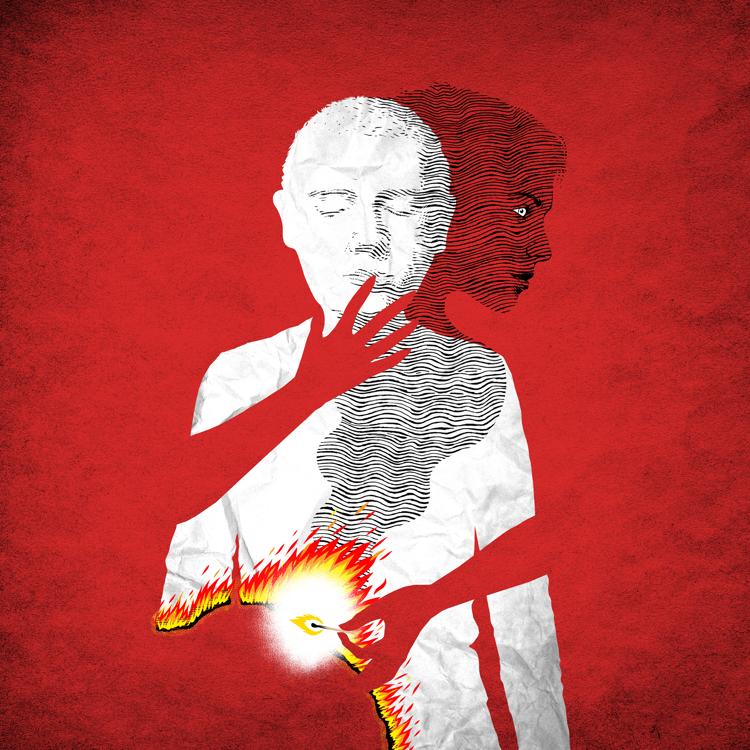
TENDER
By Belinda McKeon
Little, Brown. 416 pp., $27
Sudden new friendship can be as intense, as infatuating, as intoxicating as any romance. You meet someone, and in no time he’s lodged in your heart, snug and inextricable, as if he’d been there forever. How, exactly, did you make it through before this person came along?
Catherine Reilly is expecting no such thunderbolt the day she meets James Flynn, who walks into her Dublin flat at the end of her first year at Trinity College in 1997. She’s been studying art history and poetry, and he’s just back from Berlin, where he’s been assisting a famous photographer. Teenagers from rural Ireland, they are instantly inseparable, with a bantering intimacy all their own. When she goes home for the summer, they chat for hours on the phone.
This is the relationship at the center of “Tender,’’ Belinda McKeon’s emotionally virtuosic second novel, which fizzes from the start with effervescent comic dialogue.
“So,’’ James says to Catherine, when they meet up for a weekend. “Any fella?’’
And Catherine, who’s been nursing an unrequited crush on a guy at school, tells him a transparent lie: that she’s single by choice.
“Ah, sure, who’d have you?’’ James kids. “The state of your teeth.’’
“Oh my God!’’ she protests.
“Ah, sure, you’re as bad as Shane MacGowan, Catherine, let’s face it,’’ he says, and if you don’t have a mental image of the infamous horror that was once the mouth of the Pogues frontman, please do look it up. “Worse again,’’ James adds. “Half of them broken. The other half rotten.’’
He is lovely, this teasing James. Of course Catherine is smitten, in a friendly way.
Now if I tell you that Catherine is straight and James is gay, that she will at some point develop a physical attraction to him — eventually an alarming obsession with him — please don’t sprint away. The bare facts of their story make it sound like a pileup of clichés, including Catherine’s (age-appropriate) fascination with the poems of Sylvia Plath and Ted Hughes. But McKeon (’’Solace’’) is after something quite distinctive, examining the fragile bones of friendship, a culture of suffocating silence, and the noxious bigotry of a time not long ago in a country where same-sex marriage is now an option.
The characters in this book would never have believed that day would come. In the Ireland of 1997, a mere four years after the decriminalization of homosexuality, sex of any kind is not a proper topic for discussion, and homophobia is deep in the soil.
It’s this backdrop that makes the novel more than just another gay-best-friend story. It also allows us to believe Catherine’s naïveté, which by current standards is rather breathtaking.
When James comes out to her, she is thrilled: “There was this feeling — and she was far from proud of it — of having been given something. Or, rather, of discovering that she’d had something all along, without realizing it; like those priests in Dublin who’d had no idea that the painting in their dining room was a Caravaggio.’’
The book’s humor never vanishes, but it comes to be underlain with something much darker. These two are both so young, just blundering into the world, with no real sense of how much harm they’re capable of doing to each other.
It does not seem to occur to Catherine, who has little in the way of an emotional skill set, that James might be tormented by his sexuality, or that his loneliness might cut far deeper than the usual adolescent variety. And it doesn’t seem to occur to him, in his hunger for physical affection and shame at his own longings, that snuggling into Catherine’s bed is an excellent way to confuse her about what’s going on, or what could go on.
McKeon is startlingly good at evoking the feeling of being their age: that heedless overconfidence seesawing with rampant insecurity. Her supporting characters are pleasingly vivid, too — and it was fun to spend nearly the whole book trying to figure out whether Emmet, one of Catherine’s fellow students, was doggedly crushing on her or on James.
The riskiest thing McKeon does is to allow Catherine, in her possessiveness, to become someone we may well not like. Most of the novel takes place over the course of a year; an epilogue of sorts is set 14 years later. Like the beginning of the book, the last section opens on Catherine, and I could not help being wary of her.
Three pages from the end, I was surprised to feel my nose sting: a sign of tears brewing as Catherine receives — at last, at last — a tiny bit of salve for the tender, aching wounds she sustained all those years before. I’m still not sure I like her, but I do want her to heal.
TENDER
By Belinda McKeon
Little, Brown, 416 pp., $27
Laura Collins-Hughes can be reached at laura.collinshughes @gmail.com


 PREVIOUS ARTICLE
PREVIOUS ARTICLE